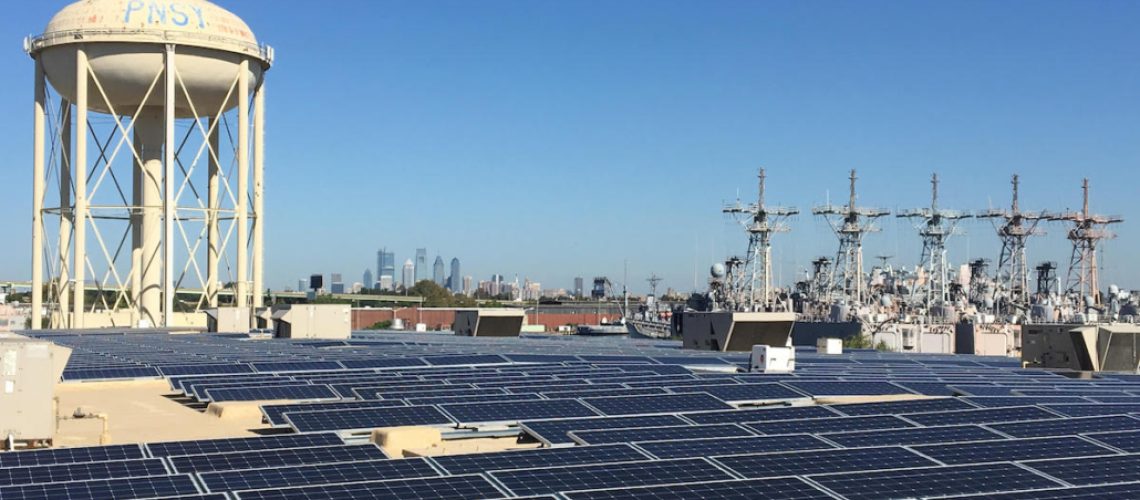Former Tesla project manager joins Seneca Solar to integrate the program management expertise of Seneca with AEDG’s growing portfolio.
Seneca Solar, the energy solutions division of Seneca Holdings, LLC, is expanding its strategic partnership with Alternative Energy Development Group (AEDG), a developer of commercial and industrial clean energy projects.
Seneca Solar is a Tribal-owned business whose profits go directly toward supporting the on-territory needs of the members of the Seneca Nation, whose territory is in western New York. The company was established to deliver projects at scale for customers wanting their climate dollars to support historically underserved communities. Seneca Solar reports that it is building a Tribal workforce and Indigenous enterprise capacity to benefit current and future generations.
Seneca Solar’s role in the partnership with AEDG is to provide project management expertise, leveraging the capabilities of the $300 million business of Seneca Holdings.
“Our collaboration with Seneca Solar enables us to support customers in the achievement of their ESG goals while also helping underserved communities around the world gain economic self-determination,” said Chris Fraga, founder and chief executive officer of Alternative Energy Development Group.
Former Tesla project manager Kevin Ademu-John will join Seneca Solar to integrate the company’s program management expertise with AEDG’s growing portfolio. At Tesla, he managed large portfolios of residential solar projects as well as Powerwall storage projects.
“I look forward to leveraging the experience I gained at Tesla to help AEDG and Seneca Solar expand their offerings,” said Ademu-John. “The partnership is combining the strong capabilities of both companies with a focus on energy equity to serve communities who have been left out of the clean-energy transition for too long.”
Seneca Solar and AEDG have collaborated since early 2022. Previous projects include conducting an extensive feasibility assessment for a Fortune 100 global company on a 10 MW solar project in Papua New Guinea, which would be built, owned, and operated by local Indigenous communities.
“AEDG has been an ideal partner for Seneca Solar as we work to support Native and other underserved communities with Earth-healing solutions,” said Jeffrey Ellis, chief executive officer of Seneca Holdings. “Together, we are showing the mutual benefit of a more traditional company collaborating with a Tribally owned company.”
Working closely with AEDG, Ademu-John will help manage five portfolios of distributed generation projects across multiple U.S. states. With total capital expenditures of $135 million, more than 55 MW of projects are projected to offset 21,610 metric tons of greenhouse gas emissions annually. The largest of the portfolios comprises 32 MW across five Northeast solar projects. These include municipal, low-to-moderate-income (LMI), and commercial-designated solar projects. In California, two solar projects totaling 4.9 MW under development will serve industrial customers.
In the Mid-Atlantic region, two Senaca Solar projects totaling 1 MW will serve retail customers. An additional three projects with 14 MW of power capacity will serve a major U.S. retail customer’s corporate headquarters and distribution facilities in the Mid-Atlantic and Southwest region.
In New England, Seneca will deploy an energy efficiency project for an agricultural customer providing energy and thermal heat. The 4 MW project is projected to reduce the customer’s electricity costs by 20% while increasing their energy efficiency.
In addition to helping Native communities develop and benefit from renewable energy projects, Seneca Solar and AEDG are helping companies of all sizes amplify the impacts of their environmental, social, and governance (ESG) programs.
Under the Inflation Reduction Act, the Clean Energy and Sustainability Accelerator will seed state and local clean energy financing institutions and support deployment of clean energy technologies. Half of those investments are prioritized for disadvantaged communities. Furthermore, programs specific to tribal communities offer rebates on the purchase of efficient electric appliances, to bring clean power to homes that have lacked electricity.
LMI communities, tribal authorities and other disadvantaged groups may be eligible for a 10% ITC adder in addition to the 30% solar investment tax credit (ITC) and 30% standalone storage ITC. Some $7 billion worth of grants can be awarded from the Greenhouse Gas Reduction Fund of the IRA for facilities such as solar-plus-storage projects of 5 MW or less on recognized tribal land. In various instances a tribal authority can recover more than 50% to 70% of costs, if conditions such as the domestic battery content and labor, and the environmental justice, are met.



